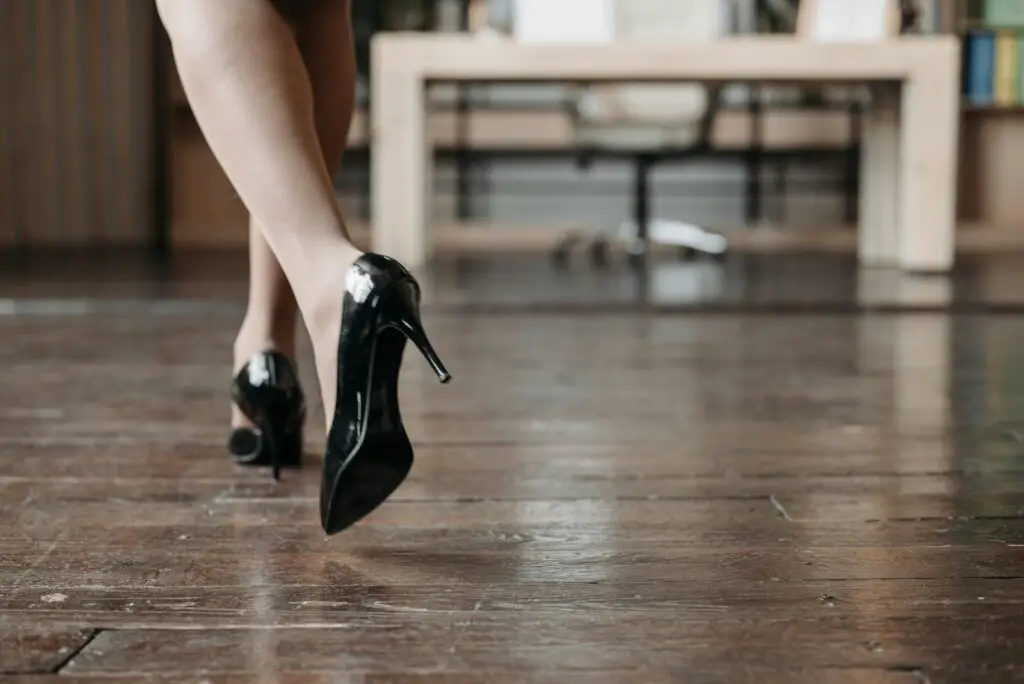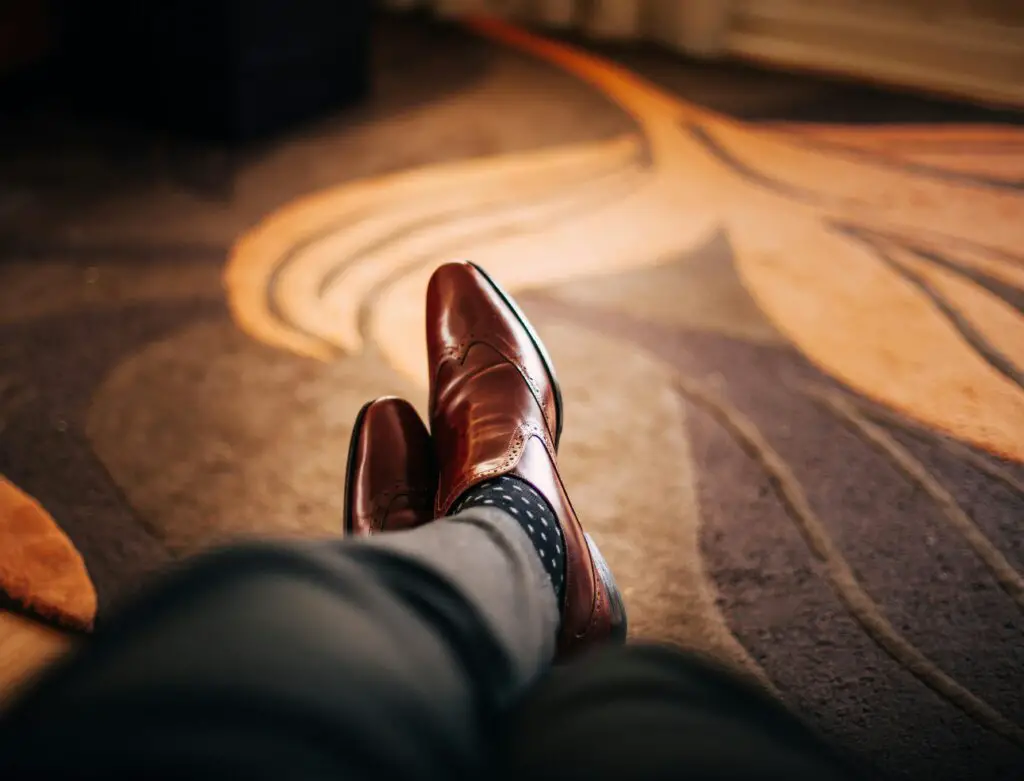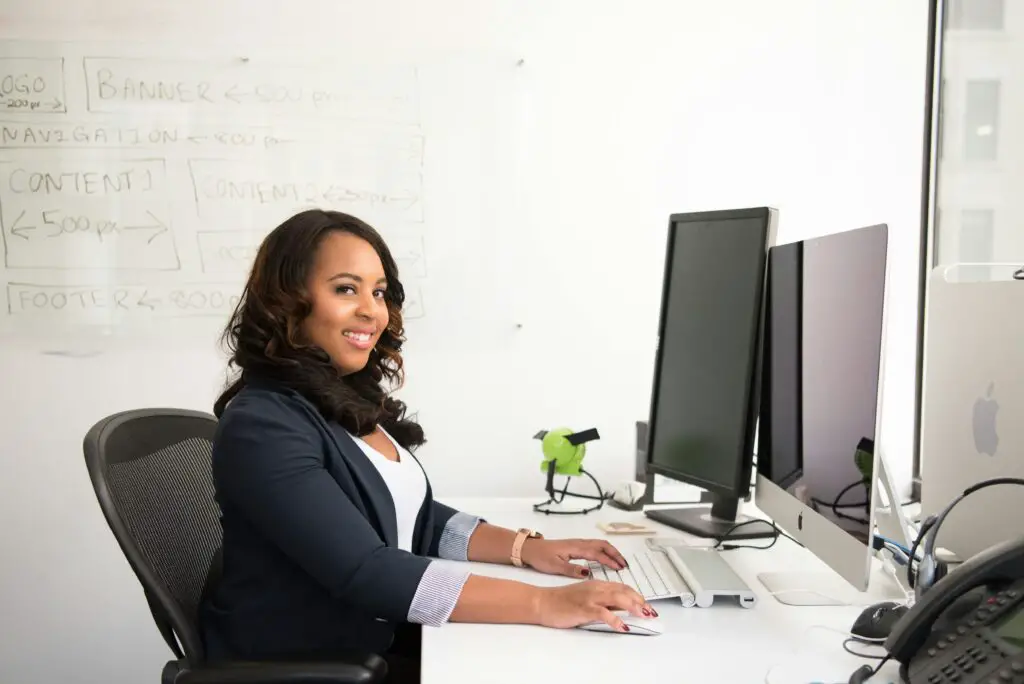1. Mandatory Suit and Tie Every Day

There was a time when every man in the office was expected to wear a stiff suit and tie, regardless of how uncomfortable or impractical it was. Even in sweltering summers, employees had to button up and sweat through the day because “professionalism” apparently meant suffering. Millennials, however, have embraced a more relaxed approach, valuing comfort alongside competence says MSN. They see no reason why a crisp button-down or even a nice polo can’t be just as professional. The idea that job performance hinges on a necktie feels outdated at best and completely unnecessary at worst. Plus, with the rise of remote work, who’s even seeing the lower half of your outfit anymore?
Women had it even worse, often forced into structured blazers and pencil skirts that made moving around a chore. Millennials aren’t buying the notion that their abilities are tied to restrictive clothing choices. While dressing appropriately for the occasion is still important, there’s a strong push for flexibility. If a job isn’t client-facing, does it really matter if someone wears a sweater instead of a blazer?
2. No Tattoos or Piercings Allowed

It wasn’t that long ago when visible tattoos or more than one ear piercing could tank your chances of landing a job. The old-school mentality saw body art as unprofessional, regardless of how skillfully it was done. Millennials, on the other hand, see tattoos as a form of self-expression that has nothing to do with work ethic. They grew up seeing their favorite musicians, actors, and even teachers with ink, so why should it be a workplace issue? The same goes for piercings—having a nose ring doesn’t make someone less capable of answering emails says Fast Company.
Luckily, many companies have loosened up on these policies, but some still hold onto the belief that “clean-cut” means better worker. Millennials don’t see the logic in covering up a tattoo when they’re sitting at a desk all day. If someone’s appearance doesn’t interfere with their job, why should it matter? says Business.com.
3. Women Must Wear Heels

There was a time when women in professional settings were expected to wear heels every single day. Whether they were walking around an office or standing on their feet for hours, the discomfort didn’t matter—it was all about “looking polished.” Millennials, however, are pushing back against this outdated expectation. They know that style and professionalism don’t have to come at the cost of comfort. Plus, the idea that a woman’s shoes determine her competence is laughable at this point shares Slate.
Now, sneakers and flats are becoming more acceptable in workplaces, and millennials couldn’t be happier about it. Why risk foot pain, blisters, and long-term damage just to meet an arbitrary dress code? If men get to wear loafers, women should be able to wear comfortable shoes too.
4. No Denim—Ever

For years, denim was considered workplace poison, no matter how dark-wash or tailored it was. The old-school belief was that jeans were too casual, even though plenty of other work-appropriate pants are just as relaxed. Millennials have fully embraced the idea that jeans can be just as polished as slacks when styled correctly. A nice pair of dark jeans with a blazer or button-down looks just as put-together as khakis. Plus, in creative industries, denim has long been a staple of fashionable professionals.
It’s not like people are showing up in ripped cutoffs and flip-flops—millennials know when to keep it polished. If jeans are good enough for high-profile CEOs, why wouldn’t they be fine for the average office worker? Many workplaces have loosened up on the denim ban, and millennials are making sure it stays that way.
5. Strict Hair Rules

Older dress codes often dictated what kind of hairstyles were considered “professional.” Anything outside of short, neatly combed hair for men and simple, non-distracting styles for women was frowned upon. Millennials have completely rejected the idea that natural hair, bright colors, or long beards are unprofessional. They argue that hair has nothing to do with someone’s ability to do their job.
Many companies have finally recognized that hair discrimination is real, and policies are starting to shift. If someone wants to rock blue hair, locs, or a buzzcut, that shouldn’t impact their career. Millennials value individuality over outdated conformity.
6. No Open-Toed Shoes

For some reason, old workplace dress codes acted like seeing someone’s toes would throw the whole office into chaos. Sandals, no matter how nice, were completely off-limits. Millennials aren’t as concerned with this rule, especially in warm climates where wearing closed-toe shoes year-round doesn’t make sense. If the shoes are professional-looking and appropriate for the workplace, why ban them?
Of course, no one’s suggesting flip-flops in a corporate setting, but a nice pair of sandals should be fair game. Millennials believe professionalism is about behavior and performance, not what kind of footwear someone chooses.
7. Men Can’t Wear Jewelry

Traditional dress codes used to dictate that men should keep accessories to an absolute minimum. A wedding band and a simple watch were usually the only acceptable pieces, while anything beyond that—like necklaces, bracelets, or earrings—was frowned upon. The old-school mindset associated jewelry with being flashy, unprofessional, or even rebellious. Millennials, however, don’t see the logic in these restrictions. A stylish chain, signet ring, or leather bracelet isn’t going to affect someone’s ability to send emails or close deals.
With personal style becoming more fluid, millennials believe self-expression through accessories should be encouraged, not restricted. If women can wear tasteful jewelry in professional settings, why should men be limited? The idea that masculinity is tied to bare wrists and a clean neckline feels outdated. A well-dressed man with a few accessories can look just as polished as someone in a plain suit and tie. Millennials appreciate workplaces that embrace individuality rather than trying to enforce rigid, unnecessary rules.
8. Only Neutral Colors Allowed

For decades, professional dress codes strictly favored blacks, grays, and muted earth tones. Bright colors or bold patterns were considered too distracting, even in offices where creativity was encouraged. Millennials see this rule as outdated and unnecessarily restrictive. A vibrant blouse, colorful tie, or patterned blazer doesn’t make someone less competent—it just makes them more expressive. The idea that workplace fashion should be devoid of personality doesn’t sit well with a generation that values authenticity.
In modern offices, dressing professionally no longer means dressing like a corporate robot. Millennials believe that what matters is the quality of work, not whether someone is wearing navy or neon. Plenty of successful entrepreneurs and business leaders wear eye-catching outfits, proving that color doesn’t equal a lack of professionalism. As long as the overall look is polished, there’s no reason why a splash of color shouldn’t be welcomed in the workplace.
9. Full Business Attire for Remote Meetings

When remote work became widespread, some employers insisted that workers maintain the same dress code they followed in the office. That meant putting on full business attire—even for Zoom calls where only the upper half was visible. Millennials immediately pushed back, seeing no reason to suffer through an uncomfortable outfit when they were sitting at home. A nice top with sweatpants? Perfectly fine. In fact, many believe that dressing too formally at home can feel unnatural and actually hinder productivity.
The old belief that dressing up puts you in “work mode” doesn’t resonate with millennials the way it did with previous generations. They prioritize efficiency and comfort, recognizing that a well-run meeting has nothing to do with what someone is wearing below the camera frame. While they still understand the importance of looking presentable for client calls, forcing employees into suits for a virtual team meeting feels pointless.
10. Women Must Wear Makeup

For years, workplace expectations subtly (or not so subtly) suggested that professional women should always wear makeup. It was considered part of “looking polished” and maintaining a “professional appearance.” Women who chose to skip foundation, lipstick, or mascara were often seen as not putting in enough effort—even if their work spoke for itself. Millennials, however, are rejecting this outdated notion. They believe professionalism should be based on skills and performance, not whether someone is wearing eyeliner.
While some women enjoy wearing makeup and feel confident doing so, they don’t think it should be a requirement. Millennials are all about choice—if someone feels great bare-faced, that should be completely acceptable. The idea that a woman’s face needs to be “enhanced” to appear professional is rooted in old-fashioned gender expectations, and younger generations aren’t having it. They want workplaces to respect personal preference rather than enforcing outdated beauty standards.
11. No Facial Hair for Men

Clean-shaven faces used to be the gold standard for professionalism, with many companies discouraging or outright banning beards. The idea was that facial hair looked “unkempt” or too casual, even if it was neatly groomed. Millennials find this reasoning absurd—why should a well-maintained beard or mustache be a problem? Many of the most successful and well-respected professionals today have facial hair, proving that it has nothing to do with work ethic.
Beard discrimination has slowly faded in many industries, but some workplaces still cling to the outdated belief that only a smooth face looks professional. Millennials argue that as long as facial hair is neat, it shouldn’t be an issue. They see no reason why men should be forced to shave if they prefer not to. After all, shaving daily can be irritating, expensive, and completely unnecessary. In an era where individuality is valued more than ever, strict shaving policies are fading fast.
12. Hosiery Requirement for Women

There was a time when women were expected to wear pantyhose with dresses or skirts in the workplace, no matter the weather or setting. Bare legs were considered unprofessional, even though men were free to wear dress pants with no additional layer underneath. Millennials see this rule as completely outdated—if a woman’s dress or skirt is appropriate, why should she have to add an extra (and often uncomfortable) layer?
Pantyhose can be hot, restrictive, and prone to ripping at the worst times, making them more of a hassle than a necessity. Millennials appreciate that most modern workplaces have abandoned this outdated expectation. They believe professionalism should be based on how someone carries themselves, not whether they’re wearing sheer stockings. Comfort and practicality should come first, and if someone wants to skip hosiery, it shouldn’t be a big deal.
13. No Casual Fridays

Casual Fridays were once a privilege, but some workplaces refused to embrace the concept, keeping strict dress codes all week long. Millennials, however, see the value in having a designated day to relax a little while still maintaining professionalism. Dressing down slightly doesn’t mean people take their work less seriously—it just means they get a break from rigid expectations.
Casual doesn’t have to mean sloppy, and millennials are great at striking the right balance. A nice pair of jeans and a polished sweater still looks put together, even if it’s not business formal. Many companies that have adopted a more flexible dress code throughout the week see no drop in productivity. Millennials believe that trusting employees to dress appropriately, rather than enforcing strict rules, leads to a more positive work environment.
14. No Logos or Graphics

Older dress codes often banned clothing with logos, patterns, or graphics, even when they were subtle. The belief was that branded clothing looked too casual or distracting. Millennials, however, don’t see why a small logo on a polo or a minimalist graphic on a sweater should be an issue. If the clothing is professional in style, a little branding doesn’t make it inappropriate.
This rule feels especially outdated in industries where creativity and individuality are valued. Millennials believe that as long as employees dress appropriately for their role, there’s no harm in wearing a piece of clothing with a discreet logo. It’s all about common sense—no one is wearing loud, distracting prints in a law firm, but banning any form of branding seems excessive.
15. Only Traditional Business Suits for Women

For decades, professional women were expected to wear structured, traditionally masculine suits to fit into corporate culture. Pantsuits, blazers, and knee-length skirts were the only options, regardless of personal style or comfort. Millennials have challenged this expectation, arguing that professionalism should allow for individuality. A sleek jumpsuit, stylish dress, or tailored separates can look just as polished as a standard suit.
The idea that women must conform to a rigid corporate uniform no longer makes sense. Millennials appreciate workplaces that focus on results rather than dictating every aspect of someone’s wardrobe. As long as the outfit is appropriate, polished, and work-ready, it shouldn’t have to fit into an old-fashioned mold.
